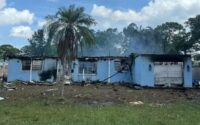Federal prosecutor hints at shutting down NYC overdose prevention centers
Manhattan’s top federal prosecutor hinted this week at plans to possibly shut down the city’s two safe injection centers, which he said are illegal and “unacceptable” under a longstanding federal law.
“I have repeatedly said that the opioid epidemic is a law enforcement crisis and a public health crisis. But I am an enforcer, not a policymaker,” Damian Williams, the U.S. attorney for the Southern District of New York, told The New York Times of the OnPoint NYC overdose prevention centers (OPCs) in East Harlem and Washington Heights.
The OnPoint centers, which opened in November 2021, allow visitors to use illegal drugs like meth and cocaine while supervised by licensed workers in hopes overdoses will be spotted before it’s too late. But some critics say there is no proof they actually work.
Williams said the safe injection centers are “unacceptable” due to the so-called “crack house statute,” a provision of the 1986 Anti-Drug Abuse Act that prohibits individuals or organizations from maintaining a property for the purpose of making, selling, or using a controlled substance.

“My office is prepared to exercise all options — including enforcement — if this situation does not change in short order,” Williams told The Times.
When reached by The Post Wednesday, Williams’ office declined to comment on whether it planned to shut down the OnPoint centers in the near future.
OnPoint’s OPCs were authorized via an executive action by former Mayor Bill de Blasio in November 2021.

Earlier this year, Mayor Eric Adams pledged that the city would have five new safe injection sites by 2025.
“As the Biden administration funds a study into the operations of our OPCs as a potential tool to help combat our nation’s overdose crisis, OnPoint is proud to continue its work with city, state and national officials to save lives and strengthen New York’s response to a devastating health crisis,” OnPoint executive director Sam Rivera told The Post in a statement Wednesday.
“Our successful partnership with the New York Police Department highlights the effectiveness of responding to this crisis with love and care, rather than enforcement. As always, we welcome a continued dialogue with government leaders.”

In the 20 months since its doors opened, OnPoint has prevented over 1,000 overdose deaths, a spokesperson for the organization claimed.
“No one has to die of a drug overdose. Harm reduction isn’t a radical and untested experiment. The data and evidence are clear. There are thousands of beautiful souls that are still with us today because of the intervention of our OPC staff,” Rivera argued.
Because the OnPoint staff can intervene quickly, most overdoses are remedied by administering oxygen, the organization explained to The Times.

“In less than two years, the city’s Overdose Prevention Centers have reversed more than 1,000 potentially fatal overdoses,” City Hall spokesperson Kayla Mamelak told The Post.
“Service providers are licensed by the state and the services being offered at OnPoint are closely monitored by the New York City Health Department. Ultimately, like the US Attorney, we are awaiting state or federal policy to definitively set out a regulatory framework for these lifesaving supports.”
Standards of care and operational expectations at ORCs are currently being codified and will eventually be available to the public, a source with the Mayor’s Office explained.

The debate about the centers comes as New York City and the rest of the country battle an increasingly dire drug overdose crisis.
In 2021, 2,668 people died from overdoses in the city alone, according to the Health Department.
Last year, Gov. Kathy Hochul declined to use some of the state’s $2 billion settlement from opioid manufacturers to open more supervised consumption centers, Gothamist reported.
Efforts to permit OPCs have also failed at a state and city level, The Times said.


